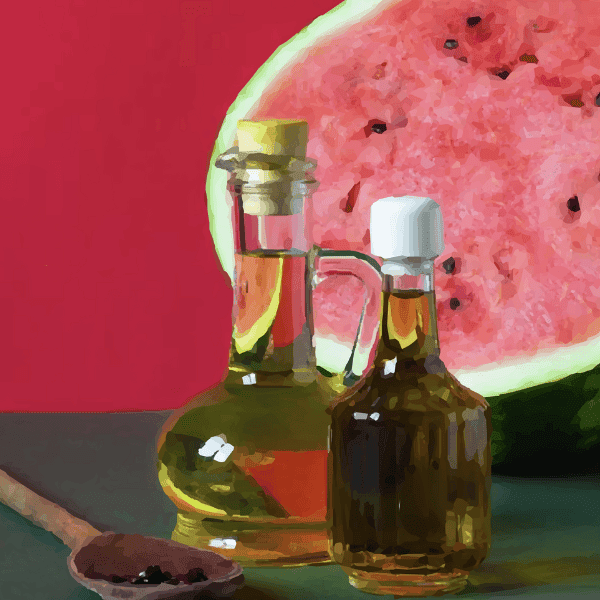
Watermelon Seed Oil {Organic}
Watermelon seed oil comes from the seeds of watermelon and is typically used in skincare products. It can be made using cold-pressed and chemical-extraction methods. Cold-pressed methods preserve more of the valuable qualities of the seeds. Watermelon seed oil has a plumping effect and moisturizes without being greasy.
You might need watermelon seed oil if . . .
- You see wrinkles and feel like you are aging quickly.
- Your skin is dry, but you do not want a heavy moisturizer.
Benefits of Watermelon Seed Oil
- It has a plumping effect to help with wrinkles and fine lines.
- It moisturizes the skin without being greasy or heavy.
Common Ways to Use Watermelon Seed Oil
Watermelon seed oil is commonly used in skincare.
How it is Made
Cold Press - Watermelon seeds are extracted from the fruit and dried. Then, they are smashed to obtain watermelon seed powder. Finally, the watermelon seed powder is mixed with water to extract watermelon seed oil.
Chemically pressed - Watermelon seeds are first crushed to obtain watermelon seed powder. Then, the powder is mixed with cellulose and water, adding the mixture to a supercritical carbon dioxide extracting device to extract the seed oil.
Safety Concerns
There are no known concerns. If you have an allergy to melons, exercise caution.
Drug Interaction: If you have any health concerns or are taking any prescription medication, please consult with your healthcare provider before adding new foods to your diet or regimen.
Breastfeeding and Pregnancy: There are no known contraindications for breastfeeding and pregnancy.
Select Studies About Watermelon Seed Oil
Characteristics and composition of watermelon, pumpkin, and paprika seed oils and flours
“The first limiting amino acid was lysine for both watermelon and pumpkin seed kernel flours, but it was leucine in paprika seed flour. Protein solubility index, water and fat absorption capacities, emulsification properties, and foam stability were excellent in watermelon and pumpkin seed kernel flours and fairly good in paprika seed flour.”